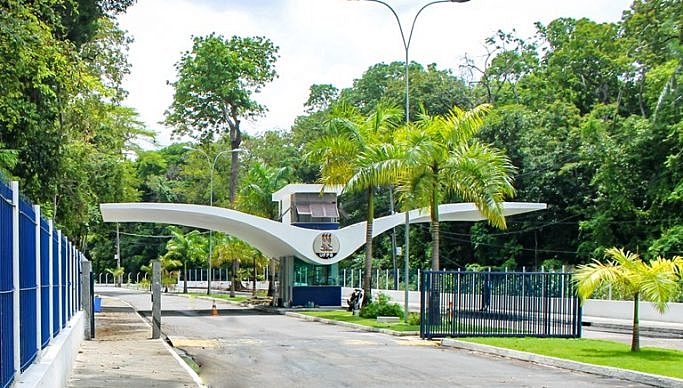
In 2005, a group of professors with formation in Linguistics, associated with the area of concentration Linguistics and Portuguese Language of PPGL – Programa de Pós-Graduação em Letras (Post-graduation Program in Letters) of UFPB, proposed the creation of a Post-graduation Program focused specifically on Linguistics, as a result of discussions and aspirations of the professors, who strived for a Post-graduation profile delineated by the increasing interest for Linguistics that Brazil has been experiencing for the past few decades.
On April 28th, 2005, by means ofthe Resolution No. 04/2005, CONSUNI authorized the creation of PROLING – Programa de Pós-Graduação em Linguística (Post-graduation Program In Linguistics), created effectively by means ofthe Resolutions No. 15 and No.16 of CONSEPE/UFPB, on May 24th, 2005. PROLING initiated its academic activities in the first semester of 2006, offering two Areas of Concentration: a) Theory and Linguistic Analysis and b) Linguistics and Education, with the following lines of research: Linguistic Diversity and Variation; Language, Sense and Cognition; Language Acquisition; Teaching and Learning Languages; Institutional and Non-institutional Practices of Reading and Writing; and Orality and Writing. In 2008, the Resolution No. 61 of CONSEPE/UFPB, from November 4th, 2008, revokes the Resolution No. 16/95 of CONSEPE and approves the restructuring of the two areas of concentration, which would be then denominated: a) Theory and Linguistic Analysis, with the lines of research: Linguistic Diversity and Variation; Language, Sense and Cognition; Language Acquisition and Linguistic Processing; and b) Linguistics and Social Practices, with the lines of research: Applied Linguistics; Discourse and Society; Oral/Written: Institutional and Non-institutional Practices.
The Brazilian Post-Graduation programs are constantly evaluated by CAPES — Coordination for the Improvement of Higher Education Personnel (a Brazilian Foundation within MEC whose primary purpose is to improve the quality of post-graduation programs in Brazil). PROLING has been positively evaluated since it was established:
For its first and second trienniums, 2004/2006 and 2007/2009, the program was assigned a score of 4. For the triennium 2010/2012, PROLING was assigned a score of 5, a recognition given to programs with a national level of excellence. In its last accreditation by CAPES, PROLING was assigned level 6 and it continues to thrive as an Excellence Program.
The vision that has guided the group, since the beginning, is to promote the theoretical diversity that characterizes Linguistics, with well-defined goals, in other words, a vision of future that implies the formation of standout professionals. PROLING turns itself to the triad Education, Research and Extension courses — a goal that has been sought in graduation and post-graduation levels — as demonstrated by the activities of the professors engaged in the Program.
The missionof the Post-graduation Program In Linguistics of UFPB is qualifying professionals to carry out teaching, research and extension activities in Linguistics, in master and doctorate levels. Therefore, the program aims at training masters and doctors experts in linguistics in one of the areas of concentration, with an excellent knowledge on linguistics that qualifies them to act in: education, research, extension and teaching classes of all levels (from elementary school to college); and in other related areas.
The Master Course specializes its students in one of the lines of research of the Program, enabling them to conduct scientific research. When it comes to Doctorate, the program offers opportunities to further develop academic knowledge and to conduct independent, advanced and original research.